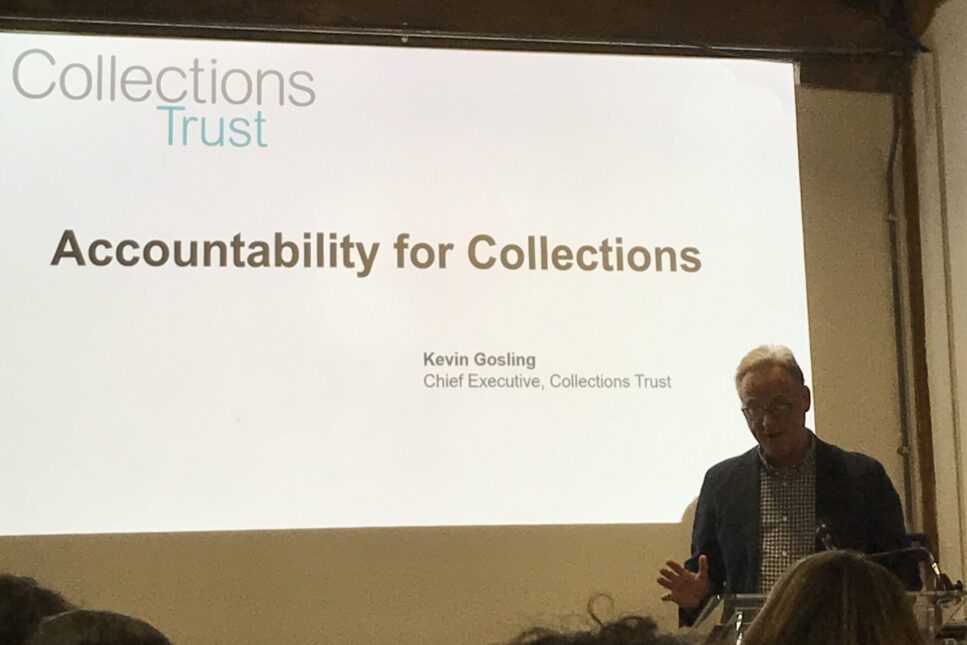
Image: Kevin Gosling, Chief Executive, Collections Trust, presenting at the UKRG AGM
Written by Susannah Darby, Loans Registrar, Birmingham Museums Trust
UKRG invited Kevin Gosling, Chief Executive of the Collections Trust, to reflect on the increased scrutiny on lost or stolen items that arose after revelations of thefts from the British Museum. This was an uplifting presentation despite the sobering topic.
Gosling began by noting that sector leaders are ‘getting’ the importance of processes such as audit and location and movement control. The Collections Accountability Briefings that the Collections Trust ran were well attended by senior managers and trustees. Due to the volume of Freedom of Information (FOI) requests on lost or stolen items, governing bodies are seeing the reputational risk of unlocated items and are viewing the importance of collections audit as being on a par with financial audit.
Gosling identified three key issues revealed by the FOI requests:
- Undocumented items: items that don’t have a database record or which have a record that lacks key inventory information.
- Lack of or irregularity of collections audits.
- Slackness in location and movement control procedures
So what can we do? Gosling made a number of observations:
- Undocumented items are a longstanding issue: while the current crisis occurred at a financially challenging time, we can’t blame everything on lack of resources: backlogs built up in periods when many institutions had more staff. It’s a question of institutional priorities and processes.
- Distinguish between inventory-level documentation (giving an item a unique number, a location, and recording enough information to find it) from full cataloguing which can involve time-consuming research and can be undertaken once a collection is inventoried.
- As many museum services manage collections of millions of objects which are not or cannot be barcoded, it is unrealistic to expect that we will never misplace an object. Gosling advocated a risk-managed approach to audit: considering checking small, high value or high theft risk items more frequently.
The Collections Trust are working closely with DCMS, ACE and the Museums Association to capitalise on the opportunities this presents, by:
- Running further Accountability Briefings
- Tweaking their homepage so trustees can quickly and easily find resources on Collections Accountability
- Supporting the sector through their existing programmes:
- Actively lobbying funders to make funding available for inventory work: he acknowledged that while an inventory is necessary to make collections accessible, not all inventory projects have an immediate public-facing impact.
But what about external impact? Gosling concluded by trailing the Museums Data Service, formally launched at the Museums Association Conference the following week. This is a joint venture between the Collections Trust, Art UK and the University of Leicester which aims to bring together all the object records of all the museums in the country within a decade, to raise the profile and value of museum documentation.
I came away from this presentation with a sense of hope and some valuable updates to share with documentation colleagues. My thanks to Kevin Gosling for an informative presentation and to UKRG for arranging an interesting and enjoyable event.

 Instagram
Instagram  LinkedIn
LinkedIn  Twitter
Twitter  My Account
My Account